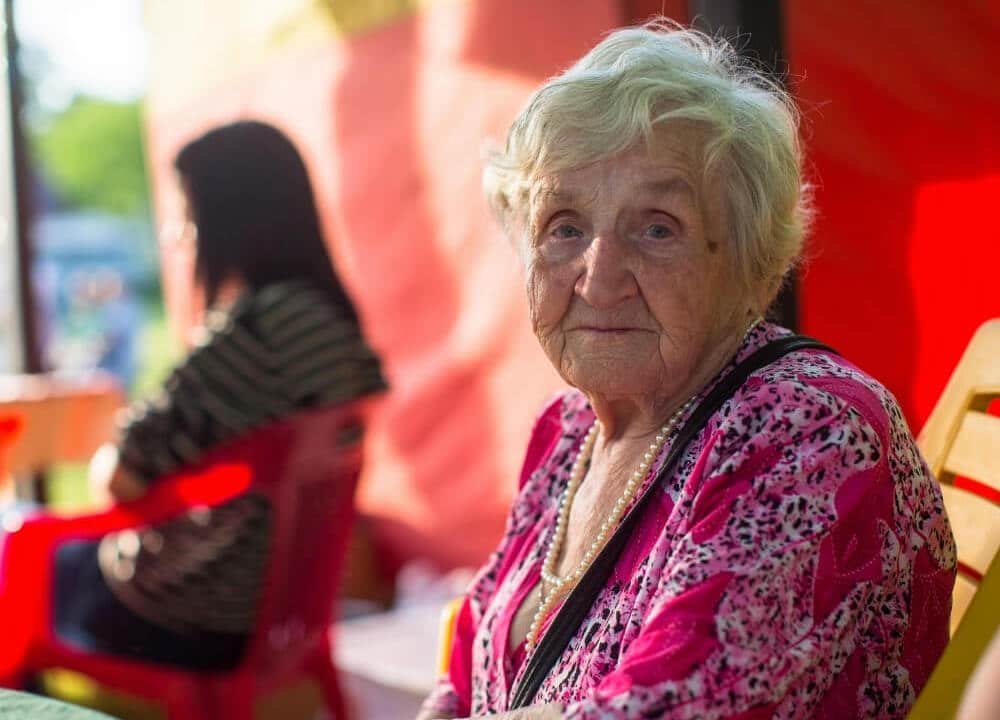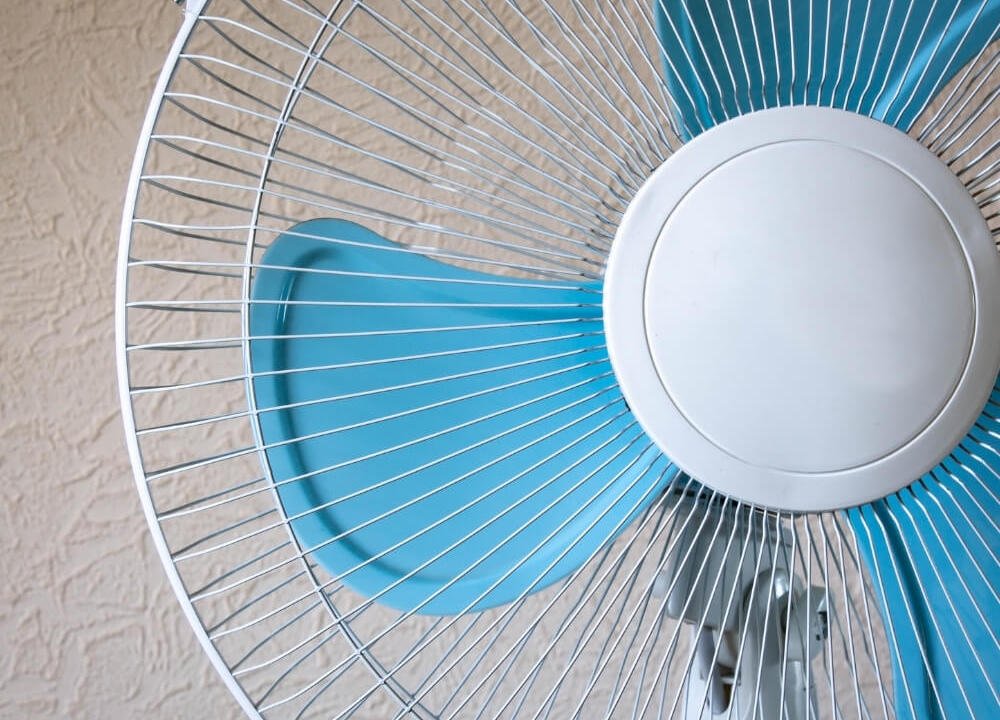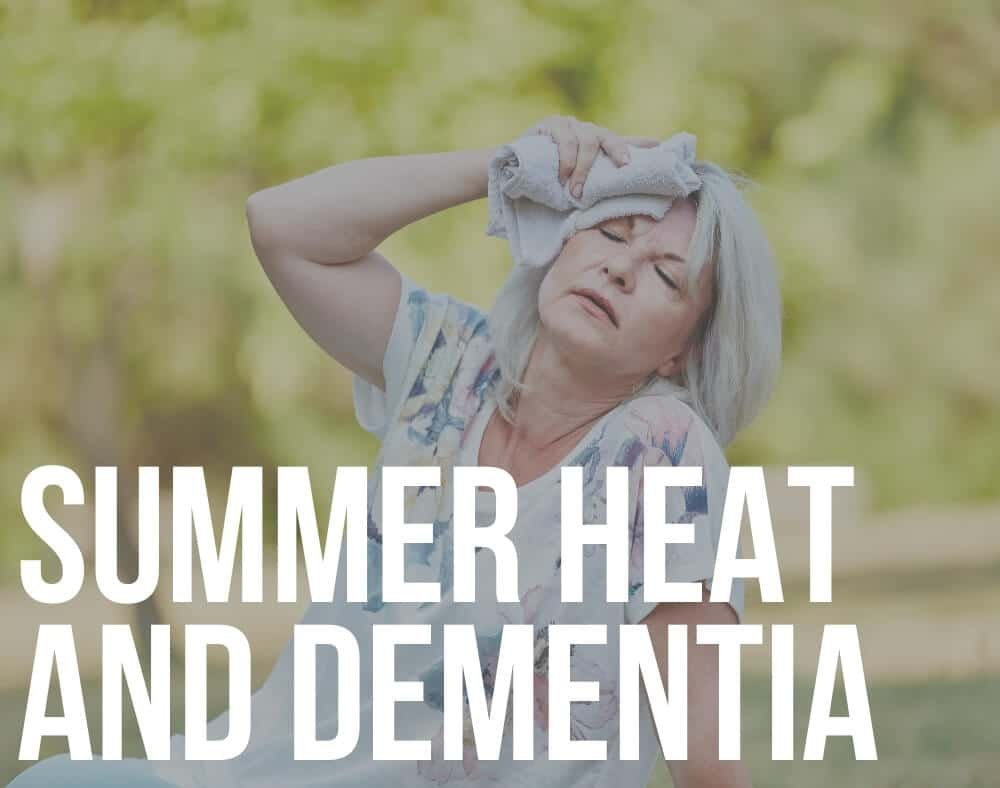We know it is important to discuss summer heat and dementia because hot temperatures present various challenges and dangers to persons with the progressive illness.
This is ESPECIALLY when the hot days in summer seem to be extreme and frequent in nature.
We are lately experiencing this more often.
Individuals with dementia need to stay safe and comfortable throughout the summer heat waves.
A study in New England revealed that there was an association between higher temperature fluctuations and increased risk of dementia hospitalizations.
Thus, we want to share some of the risks that are associated with summer heat and the ideal coping mechanisms.
Risks Summer Heat Presents to Persons with Dementia

Hot weather can negatively affect seniors in a number of ways.
The most common ones include:
Heat Stress
Also known as hyperthermia this is a group of heat-related conditions that happen when the body’s heat-regulating system does not adequately keep a person cool.
Normal body temperature for a healthy individual during the day ranges from 35.5 to 37.5 degrees Celsius.
Hyperthermia happens when body temperature is more than 40 degrees Celsius according to Physsiopedia.
There are different TYPES of hyperthermia and they include:
- Heat Syncope (sudden dizziness that occurs after prolonged exposure to heat)
- Heat-fatigue
- Heat-cramps
- Heatstroke
- Heat-exhaustion
The Centres for Disease Control cites that there are three main reasons individuals who are over the age of 65 are more prone to hyperthermia than the general population.
- Older people, in general, do not adjust well to sudden temperature changes.
- Medications that older individuals take for chronic diseases may affect the body’s natural ability to regulate temperature. This can include perspiration generation which is the body’s cooling mechanism. Examples of medications that can increase a person’s risk of heat-related stress include sedatives, diuretics, tranquilizers, and some blood pressure and heart medicine.
- Older adults are prone to suffering from chronic medical conditions that may affect the way the body responds to heat.
Behavioral Changes

Seniors who have dementia may also showcase behavioral changes and mood swings due to excessive heat.
Some may become more agitated which can be tough if the person is already experiencing anxiety, aggression, and outbursts.
It becomes increasingly important to tend to their emotional needs when dealing with summer heat and dementia.
Dehydration

Many seniors suffering from dementia do not drink enough fluids in general.
It may not be intentional because some may not even recognize when they are thirsty. In such situations, it is easy for a person to suffer from dehydration.
This can be dangerous because it can result in numerous complications because of toxins that build up in the bloodstream.
Dehydration can also cause STRAIN to the kidney and the liver resulting in urinary tract complications and a host of infections.
Note that some medication can also affect an individual’s dehydration which may result in a drop in blood pressure and risk of fainting and falling.
Avoid this by making sure the affected person sticks to a STRICT schedule of taking medication.
It is also advisable to talk to a doctor about any drug interactions to be on the safe side.
Homeostatic Imbalance
This is another example of how extreme heat can affect seniors with dementia.
The homeostatic imbalance that occurs because of summer heat and dementia often leads to the development of diabetes and cardiac arrest.
Protective Measures

There are different ways to protect people with dementia from excessive heat and some of them include:
Air conditioning
Ensure air conditioning is working well.
A professional should check out the system before the hot weather checks in. This is regardless of whether a person lives at home or at a senior center.
In the absence of air conditioning, the rooms should be properly ventilated with fans.
This will AVOID the circulation of humid and hot air in a room.
Keeping blinds and curtains shut can also reduce sunshine that increases temperatures in a room.
Fluids
Another coping mechanism when it comes to summer heat and dementia is to make sure the individual with the illness takes plenty of cool and non-alcoholic fluids.
They should also wear light clothing and take cool baths, showers, or sponge baths.
Additionally, beddings should remain clean and light particularly for individuals who are bedridden. Bed frames can also help with air circulation under the bed.
Invest in helpful items
Another way to protect a person with dementia from heat stress is to purchase items like small electric fans that fit in their bags and are easy to carry around.
Water bottles that alert a person when to take water can also be beneficial.
Regular check-in’s

If the person with dementia lives alone, it is important for someone whether a relative or caregiver to check up on them every day.
Let the individual lookout for signs and symptoms that are associated with heatstrokes like nausea, dizziness, and disorientation.
Alternatively, the senior with the progressive illness can enroll in an adult daycare or senior center program.
These will offer a safe and cool place for the seniors to pass time.
Avoid going out
It’s simple: Avoid going out during certain times of the day.
Unforgettable states that this is anywhere from 11 a.m. to 3 p.m. (hottest time of day).
If the individual has to step out, say for a doctor’s appointment or grocery shopping, it is best they complete errands early morning when it is cooler.
Trying to stay in places that are cool and shady might also help.
Act accordingly
Know how to react in the event of a heat-related illness.
When talking about summer heat and dementia, it is also important to know what to do if a person experiences heat stroke or any other illness that is related to heat.
The affected person should immediately be moved to an area that is cool and has shade.
A wet and cool cloth should then be applied on the armpits, groin, head which are examples of areas that cool fast.
Feet should also be elevated and the person helping should try and fan the individual.
Immersing a person in a tub that has cool water, helping them to a cold shower or sponging can help reduce body temperature.
Remember to seek medical assistance fast while monitoring the individual’s temperature.
Closing Remarks
Going through the topic of summer heat and dementia it is evident that seniors become most vulnerable during extreme weather conditions.
They, therefore, need to be well-protected during this time. Something we can easily overlook.

